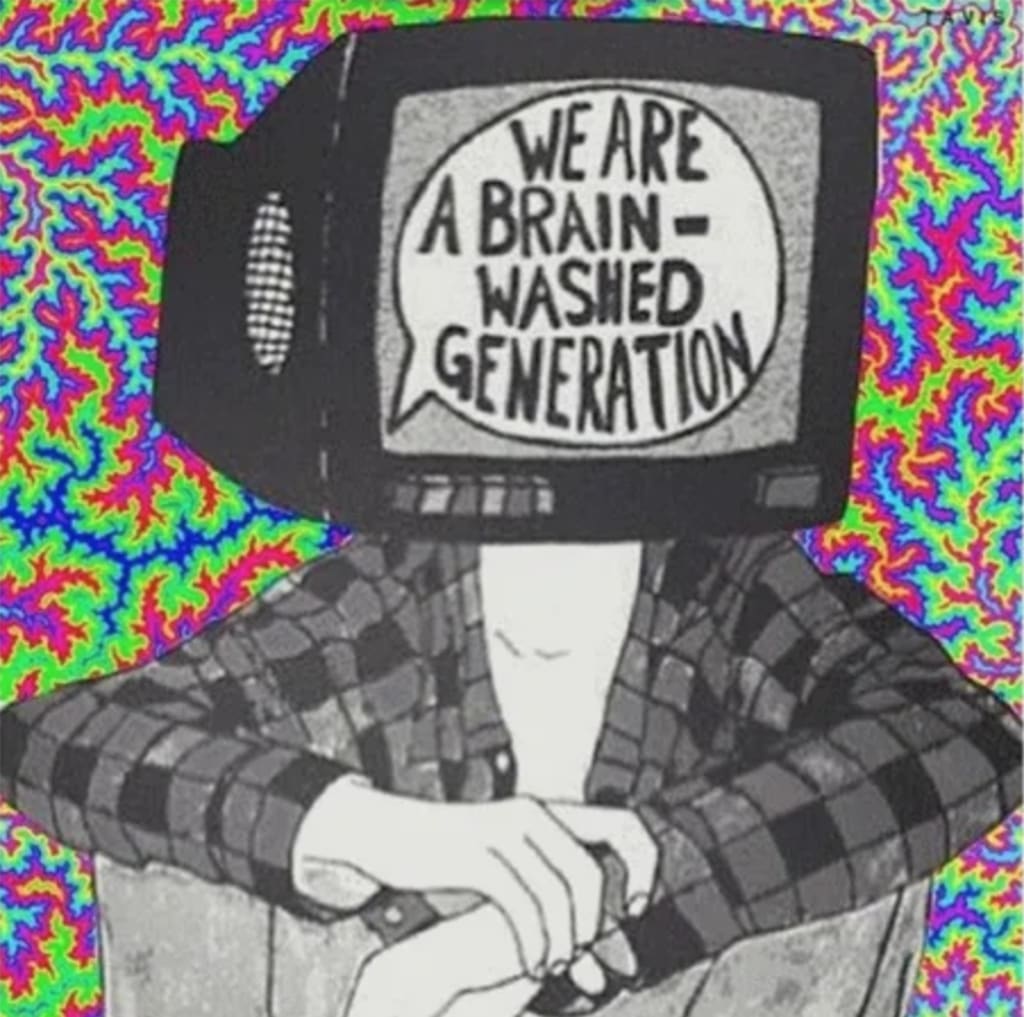The Fake Truth of Social Media
We live in a world driven by likes and comments. These chases for an arbitrary number next to every post have lead us to a false popularity contest that brainwashes our generation.

This is going to be the hurtful truth that you probably don't want to hear, but need to hear.
Young adults born after 1995 are experiencing more mental health issues. The rise of social media has a large part to do with it.
The research, published by the American Psychological Association, found a significant increase in the number of young adults and adolescents who reported experiencing negative psychological symptoms—specifically in those born in 1995 or later.
The same cannot be said about the older generation of adults.
Recent studies have also shown that more social media use is associated with increased reported symptoms of social anxiety, social isolation, and feelings of loneliness.
Especially with the way that social media platforms are changing, the fact of the matter is that free and organic social media marketing doesn't work like it use to. This is why a lot of people are seeing a decrease in the constant flow of new followers or the regular amount of likes they get on pictures.
But who's to blame?
You could point your finger at the platforms themselves for changing the algorithm, or pinpoint where the change actually occurred.
The big shift in social media came from a data scientist (with way more IQ points than me) that said something along the lines of, let's jumble up the newsfeed on Facebook, configure the feed to tell people what is important for them to view, and force businesses to run ads on the timeline.
Even if you follow 1,000 people on Instagram, the odds of you seeing all of your follower's post is slim to none. But you do see the ones that you interact with the most and the ones you idolize.
For some, it might be because they are your close friends or they're businesses/niches that you feel connected with.
Let's take myself for example, I follow close to 1,400 different accounts on Instagram and 99 percent of my feed consists of my close friends, fitness gurus, sports teams, and digital marketing pages. That's what I'm most interested in. However, I can promise you I don't know that many people, and there definitely aren't that many sports teams out there to be following so many different pages. My feed probably looks completely different from others, yet I only see the same couple hundred of pages on my feed every day.
For others, they might follow artists, celebrities, or other successful people that they are curious about. Why is this the case? I think the answer is simple. No one wants to absorb content they don't enjoy and most people try to follow those ahead of them.
There's countless of people that have ten thousand or more followers and are constantly increasing the number of likes they have to make themselves appear to be big influencers, who portray themselves as living a luxurious life.
But what about the average person?
What do most people do when they post that "fire" picture that they hope finally hits 500 likes, after every other post averages lets say 400 likes? They are constantly updated their page to see how fast they are accumulating likes. Then if they don't hit that ideal mark they were envisioning in their head, some people might take that harshly, thinking their value is not as high as someone who gets say 1000 likes on a post.
Not everyone might be this way, however, a large majority of the young adult population thinks this way whether they admit it or not.
So how do we fix this issue?
How can you tell kids that their first, last, and best love is self-love when they are being born into a culture that makes you feel like your worth, your value, how you think of yourself and how you love yourself is in the hands of others.
I don't care how many likes you get. Do you like yourself?
That is what is important. When you depend on people to build you up those same people have the power to bring you down.
You don't need anybody on social media to know your worth.
How do we fix a generation that was born into social media to not have a psychological vulnerability and build up confidence so the future generation doesn't suffer the same consequences?
True confidence is about knowing you are enough without needing the validation from others.
How do you get that through to people in 2019 when everything is about how many followers you have and how many likes you get on a picture?
To be completely honest, I don't have the answer. But I think the start is with the individual. Thinking about social media in a different way.
If the world was blind, how many people would you impress?
I think the true power of social media is best prevalent when you see mass amounts of people coming together to fix culture/environmental issues. Or when you see people posting about their successes in life while ignoring the successes of others. Everyone has a different path to this game of life, some of us just take different roads. So there is no sense in comparing your value to someone on the other side of your screen.
But let me make one thing clear, Social Media isn't all bad.
I don't write this to completely bash on the idea of social media and say it's the worst drug of them all. After all, I spend on average two hours a day scrolling through platforms like Twitter, Instagram, and Snapchat. The difference is that my use of social media is often times for work purposes, getting news, or seeing what my friends are up to.
Social media is exciting, it brings the world together in ways that were once unimaginable. On the same token, it can cause an individual to think less of themselves and almost poison their brain to think their worth comes from it.
So with that being said, my final words come as a challenge to all those that might think of social media more negatively than positively. I challenge those that are overly concerned with their number of followers, as well as those who think social media is the worst thing invented. Regardless of your opinion on social media, it is here to stay. It is forever going to evolve.
We all just have to adapt.
How will you be a positive change that makes the social media world a better place for our young adults and adolescents? What will you do to create an environment where all of us can provide value to each other and the individual can keep their sanity?
...
Thank you all for taking the time to read my article to this point. If you enjoyed the content, feel free to share, follow my socials for more, or maybe be so kind as to leave a tip.
Let's change the dynamic of social media together, for the better.
About the Creator
Ryan Cooper
Entrepreneur
Founder of Paradise Digital Marketing
All donations are greatly appreciated! They go towards my business and my college education! Thank you!
Contact me!
https://www.instagram.com/itscoop_04/
Email: [email protected]






Comments
There are no comments for this story
Be the first to respond and start the conversation.